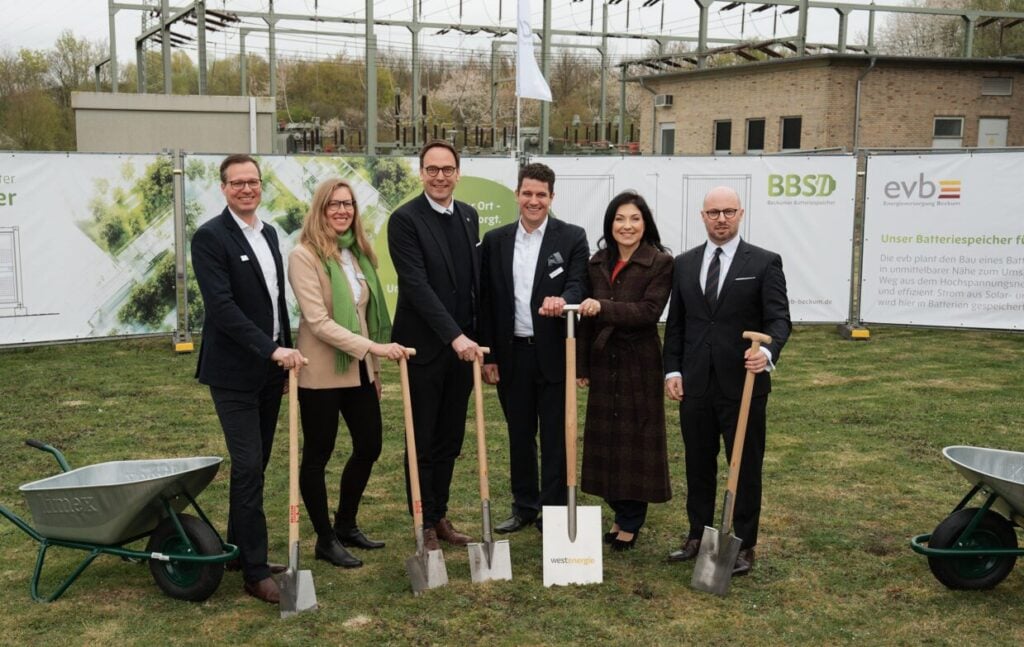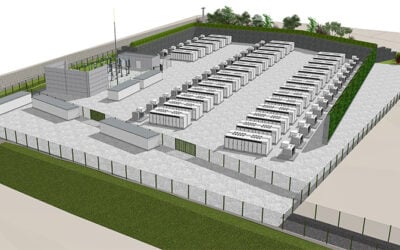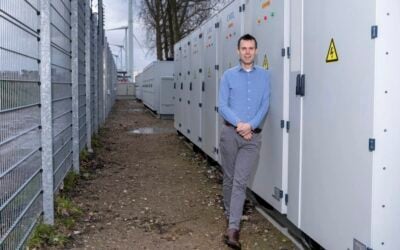
German companies Energieversorgung Beckum (evb), Westenergie and E.ON Energy Solutions (ESY) have launched construction on a 2.75-hour BESS project in Beckum, Germany, and offered local citizens a chance to invest in it.
The companies said the battery energy storage system (BESS) will help stabilise the power grid, reduce price fluctuations and make renewable energy sources more productive.
Enjoy 12 months of exclusive analysis
- Regular insight and analysis of the industry’s biggest developments
- In-depth interviews with the industry’s leading figures
- Annual digital subscription to the PV Tech Power journal
- Discounts on Solar Media’s portfolio of events, in-person and virtual
Or continue reading this article for free
Katherina Reiche, CEO of Westenergie, said energy storage is needed in Germany as more renewables come online: “Especially in summer, the electricity from the sunny midday hours must be made available for the consumption peaks in the morning and evening. Grid-serving battery storage systems make a decisive contribution here: they absorb excess energy and release it again as needed.”
Interestingly, the companies have made the project available as an investment opportunity for local citizens with up to 500 parties able to invest. The opportunity guarantees an annual return of 3.5% for utility customers and 3.0% for non-customers, the announcement said.
“This is the energy transition in action on the ground,” said Beckum’s mayor Michael Gerdhenrich. “We are thus strengthening regional value creation and offering people a concrete opportunity to become part of this progress.”
EVB is also planning a ‘battery storage tariff’ with which companies and households can reduce their electricity costs through intelligent consumption behaviour.
The project’s primary ownership will be through new joint venture (JV) entity Beckumer Batteriespeicher, with a 76:24 equity split between evb and ESY.
ESY will be responsible for technical implementation while construction, maintenance and operation of the plant will be done by Westenergie Netzservice. Note that Westenergie holds 34% of evb too.
The BESS project will be equipped with noise protection walls, and an independent noise analysis forecast that noise levels will be 40.5 decibels, well below the permissible 60 decibels. Noise is a big topic in the industry, particularly in population-dense markets like Europe, and we discussed it recently with system integrator Wartsila in a recent interview (Premium access).
Meanwhile, optimiser Entrix has been enlisted by the project’s owners to operate the BESS in the electricity markets to maximise returns.
Germany is quickly becoming one of the most active grid-scale BESS markets in Europe. Sources say the size of its wholesale energy market means it has more enough trading opportunities to make up for ancillary service market saturation, when that comes.
Big names in the industry have recently made announcements in the country. In March, the system integration arm of SMA Solar and utility RheinEnergie partnered to deploy BESS projects in Germany.
Just prior to that, oil and gas major TotalEnergies reached 321MW of under-construction BESS in across the country while in February independent power producer (IPP) RWE commissioned a 235MWh system in North Rhine-Westphalia.






